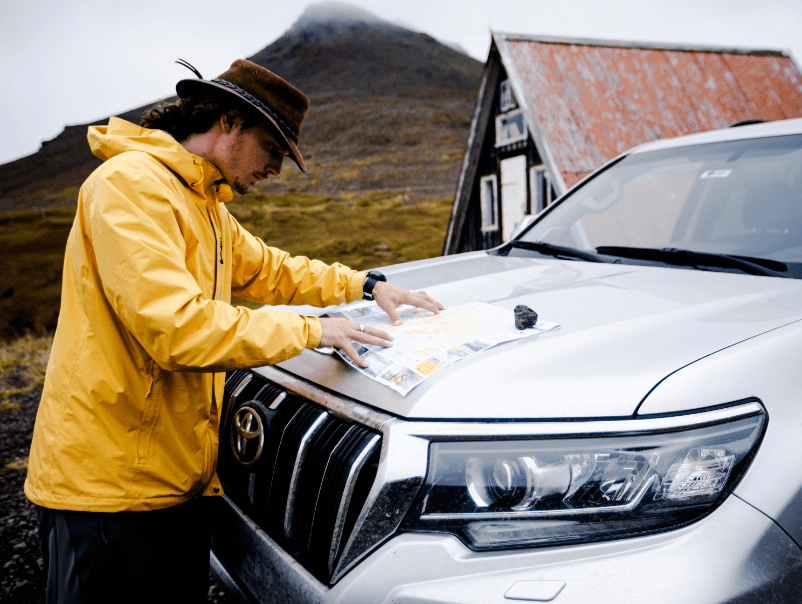Choosing between an Rv vs. a camper can be daunting, like navigating through a sea of icebergs. With Iceland's unique terrain, climate, and driving conditions, it is essential to consider all factors before selecting a vehicle for your road trip.
Fuel, accommodation, food, and other expenses must be considered when deciding on a vehicle for your Iceland road trip. Fuel costs are significantly higher for RV drivers due to their larger size and heavier weight.
This article will investigate the pros and cons of RVs and campers so that you can make an educated determination regarding RV vs. camper. So if you are considering an RV or camper for your Iceland road trip, keep reading to discover the best option.
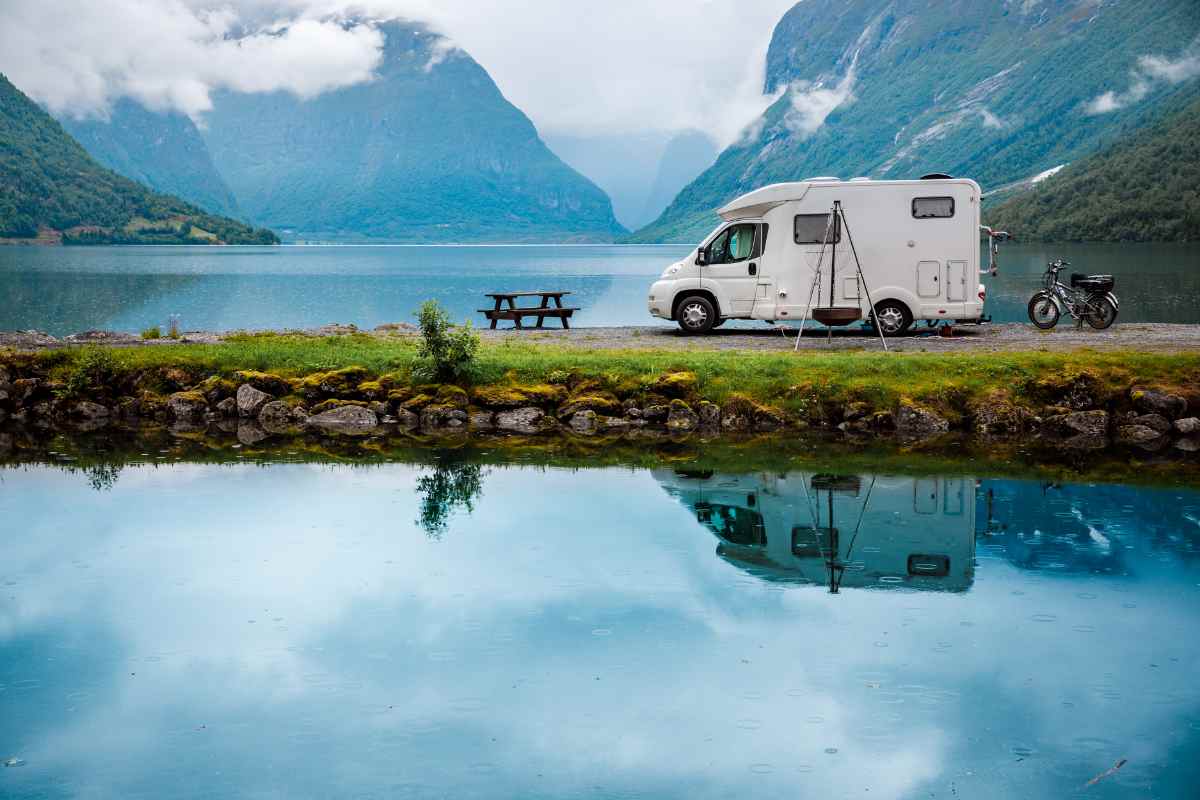
What Is an RV?
An RV, or Recreational Vehicle, is a type of vehicle that combines transportation and temporary living quarters for travel. These are usually used for recreation, and camping purposes. RVs come in many shapes and sizes. They range from small trailers to large motorhomes. Several RV gadgets and accessories are also available to enhance the driving experience.
RVs typically include the following features:
- Sleeping area: Most RVs have beds or sleeping areas for up to six people.
- Kitchen: Many RVs have a kitchen with a refrigerator, microwave, stove top, and sink.
- Bathroom: Some RVs have bathrooms with showers and toilets.
- Living space: Many RVs have living spaces with seating areas, TVs, and other amenities.
- Storage space: Many RVs have storage compartments for clothing, food, and supplies.
- Outdoor space: Some RVs have outdoor decks or patios for relaxing in the sun or enjoying the outdoors.
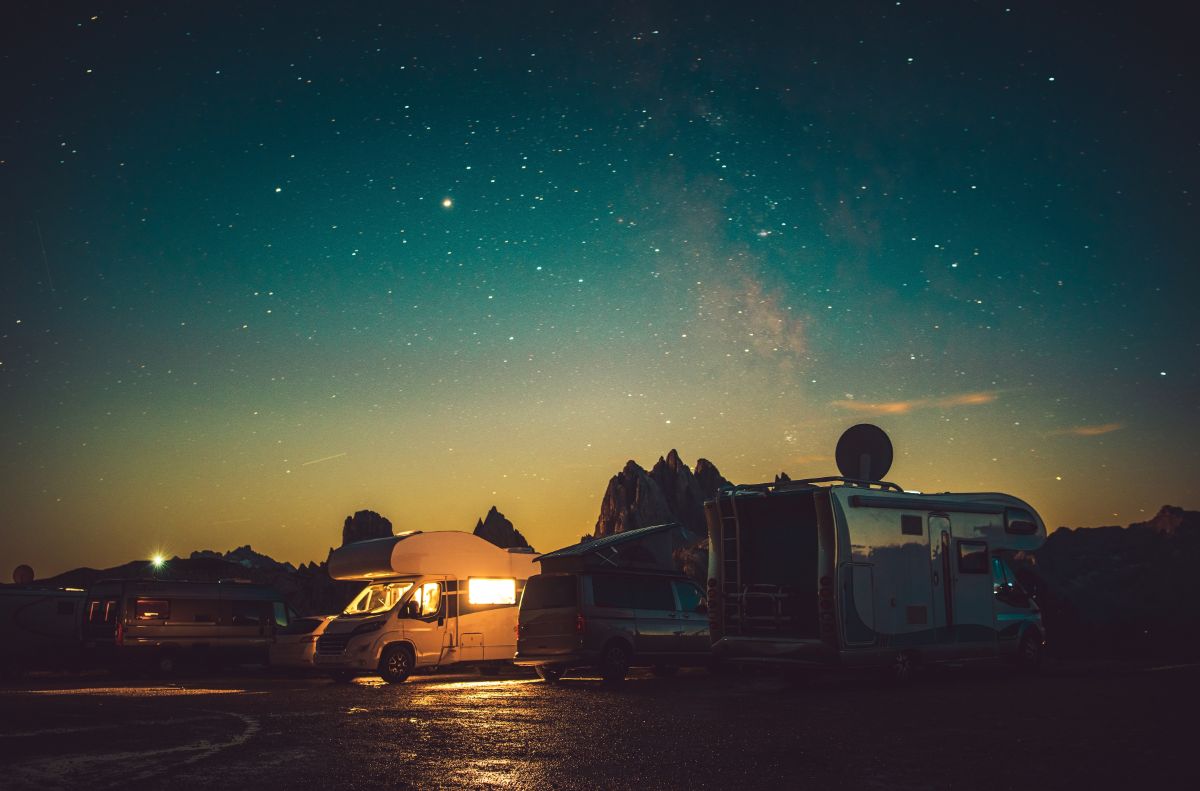
Pros and Cons of Using an RV in Iceland
Exploring Iceland in an RV is a great way to experience the country's stunning landscapes and unique culture. With so many options for an RV rental in Iceland, it can be hard to decide if this is the right choice for you.
Here are some of the pros and cons of using an RV in Iceland:
Pros
- Flexibility: An RV allows you to travel at your own pace and explore different areas as you, please. They are excellent for exploring the famous Diamond Circle route or any other area of Iceland.
- Comfort: You have your own space and amenities, so there's no need to worry about finding a place to stay each night.
- Cost: Renting an RV can be more affordable than staying in hotels or hostels.
- Convenience: You don't have to worry about packing up daily and moving from one place to another.
Cons
- Space: RVs are often smaller than hotel rooms, so they may not be suitable for larger groups or families.
- Parking: You may need to find a place to park your RV each night, which can be difficult in some areas unless you book a campsite.
- Driving: Driving an RV can be challenging, especially on narrow roads or mountain passes.
- Fuel Costs: Fuel costs can increase quickly when driving an RV around Iceland.
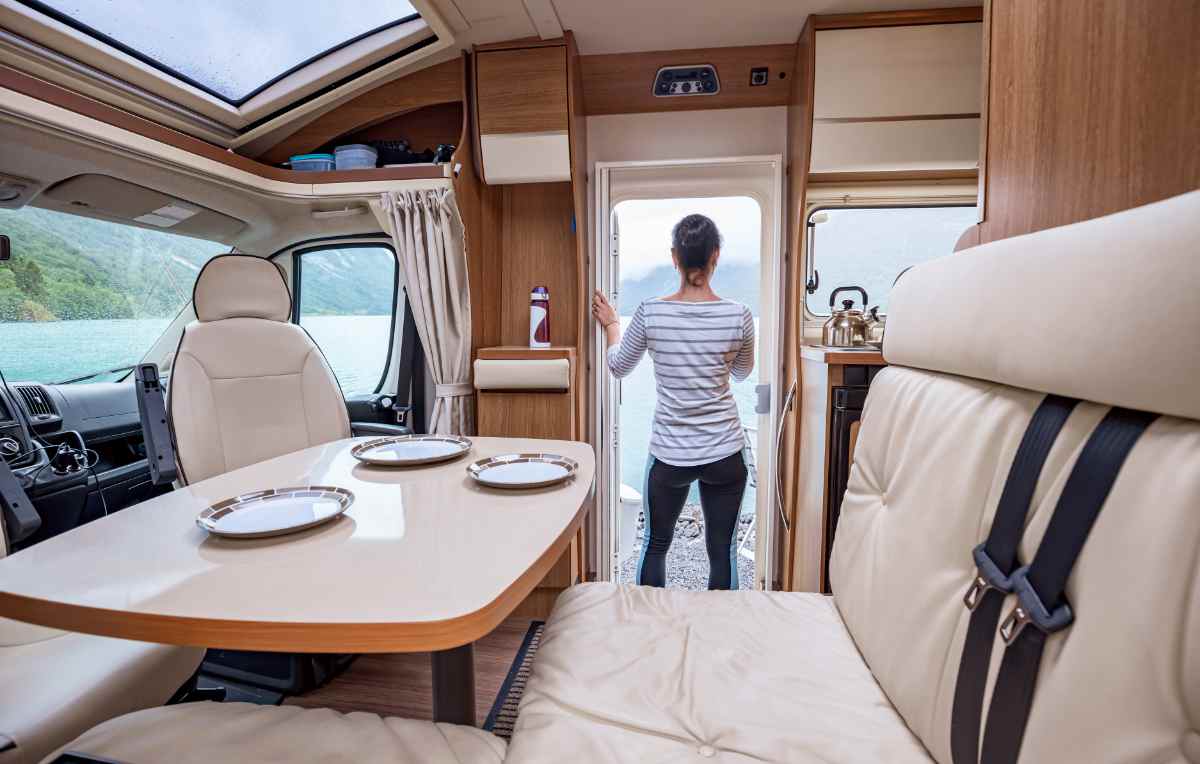
What Is a Camper?
A camper is a type of vehicle, usually a van, that combines transportation and temporary living quarters for travel, recreation, and camping. Campers come in many shapes and sizes, ranging from pop-up campers to luxury vans. If that's not enough, there are plenty of essential extras available that will make your campervan journey even more enjoyable!
Campers typically include the following features:
- Sleeping area: Most campers have beds or sleeping areas for up to four people.
- Kitchen: Many campers have a small kitchenette with a refrigerator, microwave, stove top, and sink.
- Bathroom: Some campers have bathrooms with showers and toilets.
- Living space: Many campers have living spaces with seating areas and other amenities.
- Storage space: Many campers have storage compartments for clothing, food, and supplies.
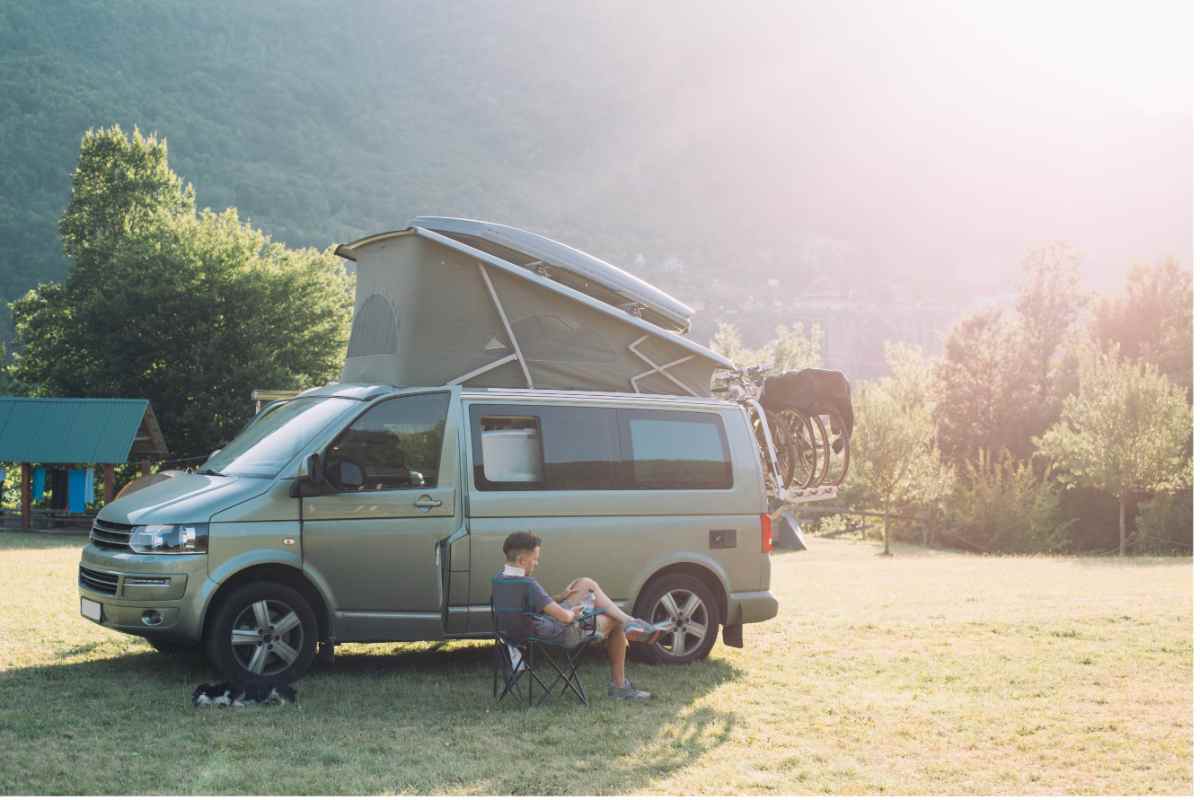
Pros and Cons of Using a Camper in Iceland
Using a camper for your Iceland road trip can be an exciting and rewarding experience. But what are the pros and cons of using a camper in Iceland?
Here's what you need to know before making a decision.
Pros
- Size: Campers are typically smaller than RVs to fit in tight spaces like campsites or parking lots.
- Cost: By renting a campervan, you can save up to 50% compared to staying in hotels! Not only that, but it's the best way to drive around Iceland economically and take your time exploring all its breathtaking landscapes.
- More fuel-efficient: Campers are more fuel-efficient than RVs, so they'll save you money on gas.
- 4x4 Capability: Some campers have 4x4 capabilities, making them ideal for driving on rough terrain
Cons
- Limited space: Camper vans are generally smaller than RVs, so there is less living and storage space.
- Basic amenities: While camper vans have amenities like a bed and a small kitchen, they may not have all the luxuries of an RV, such as a shower or toilet.
- Lack of privacy: Camper vans typically have limited privacy, often only separated by curtains or small partitions.
- Limited water supply: Camper vans may have limited fresh water supplies, so you may need to refill your water tanks more frequently or be conservative with your water usage.
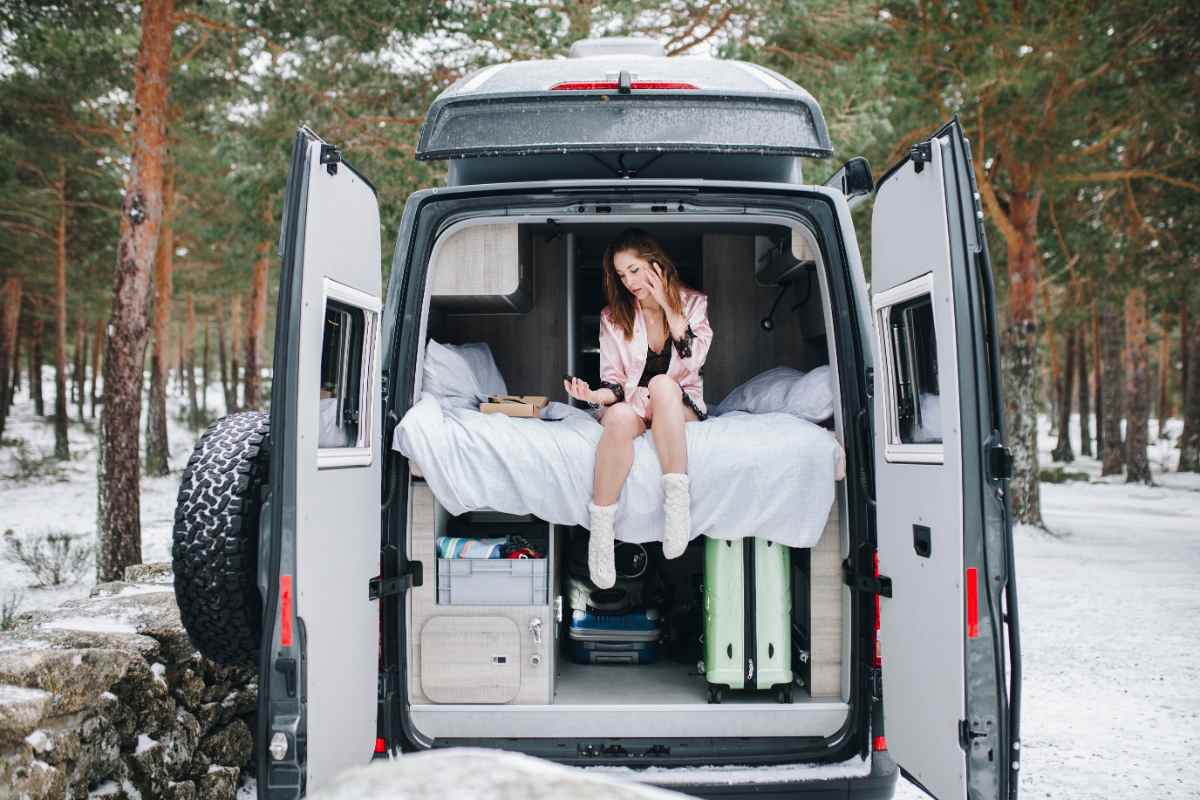
RV vs. Camper: The Differences
If you're planning a road trip in Iceland, you may wonder whether to choose an RV vs. a camper. While both options offer a mobile home-away-from-home, they have some essential differences that may make one option more appealing depending on your needs.
Let's take a look at some of the main differences between RVs and campers to help you make an informed decision:
- Size and space: RVs are typically larger than campers, providing more living and storage space.
- Amenities: RVs often come equipped with a broader range of amenities, such as a shower, toilet, and larger kitchen, while campers may have more basic amenities like a bed and a small kitchenette.
- Fuel efficiency: Campers are generally more fuel-efficient than RVs due to their smaller size and weight. In contrast, RVs tend to be larger and heavier, which can result in lower fuel efficiency.
- Maneuverability: Campers are typically more nimble and easier to maneuver than larger RVs, which can be advantageous on Iceland's narrow, winding roads.
- Off-road capabilities: Some RVs may have off-road capabilities that campers do not, making them better suited for accessing remote or rugged destinations.
- Cost: Campers are often more affordable to rent than larger RVs, making them a good option for budget-conscious travelers.
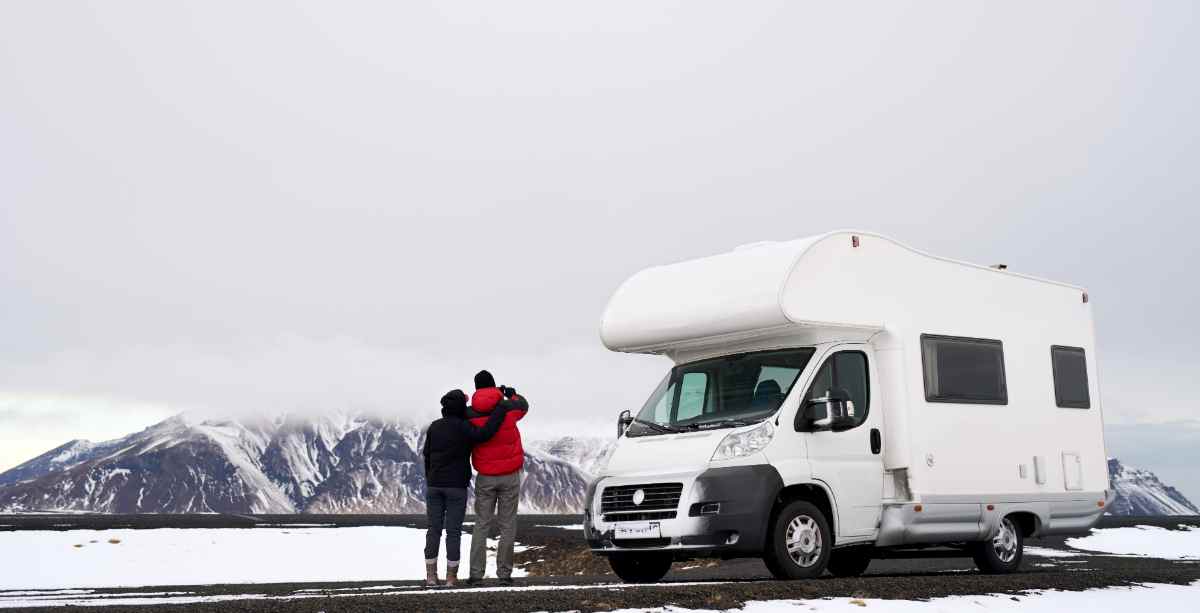
Driving in Iceland: RV vs. Camper
Driving an RV vs. a camper in Iceland can be a different experience. While both vehicles can handle rough terrain, there are some key differences to consider when making your decision.
Here are some things to keep in mind when deciding between an RV vs. a camper for your road trip:
- RVs: RVs are typically larger and heavier than campers, so they may not be as maneuverable on Iceland's narrow roads and tight turns. RVs also require more fuel, so you should plan for extra gas stops.
- Campers: Campers are generally smaller and lighter, making them better suited for Iceland's tight roads and turns. They are also more fuel-efficient than RVs, so you can go longer between gas stops.
- F-Roads: If you intend to drive on the F-roads, which are unpaved and often have very steep slopes and sharp curves, a 4x4 camper is highly recommended. An RV may be too large and unwieldy for these roads.
- Camping: Iceland has many stunning and remote locations, but respecting the environment and following camping regulations are essential. RVs may have more amenities for camping, such as built-in toilets and showers. At the same time, campers may require more self-sufficient camping setups.
- Licensing: No international license is required if you plan on driving in Iceland. However, you must be at least 18 years old and own a valid driver's license from your homeland, including the necessary information, such as an ID number, photograph, and expiration date.
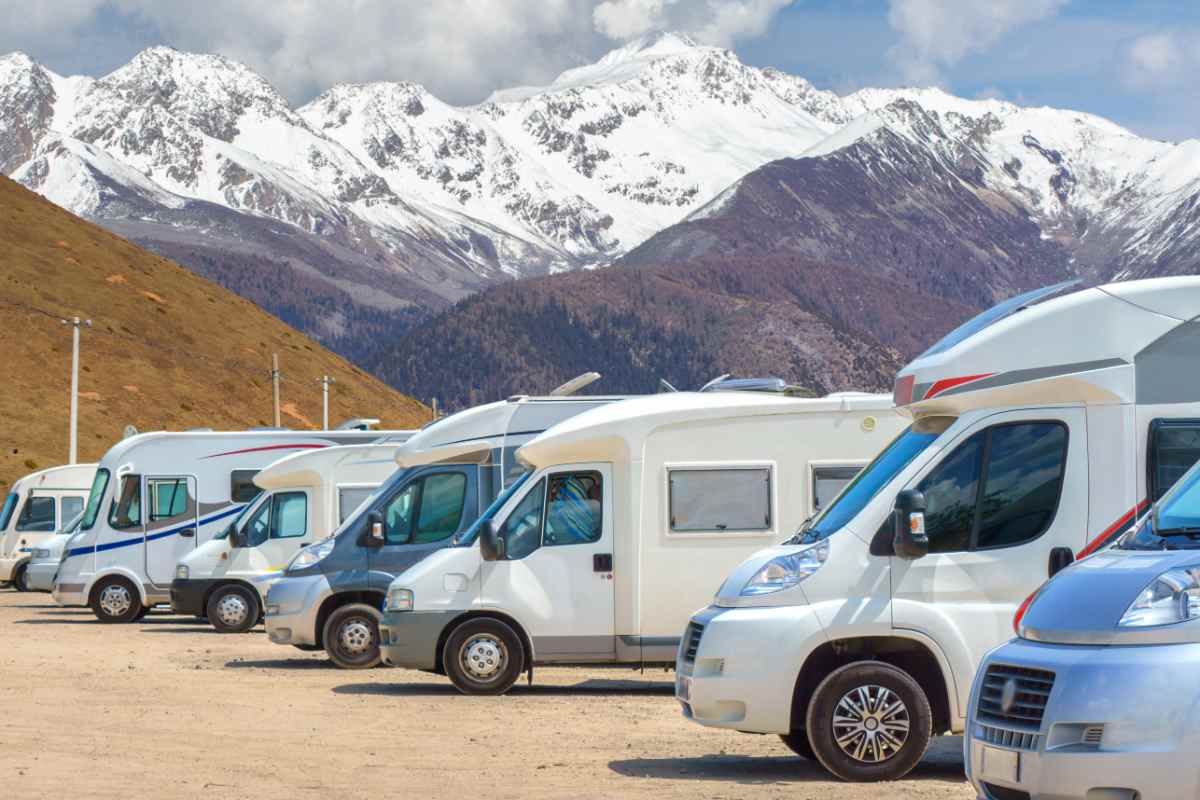
Which Vehicle is Right for You? RV vs. Camper
When booking your vehicle, deciding between an RV vs.a camper can be daunting. Your preferences and needs should be prioritized when deciding between an RV and a camper. Consider what amenities you need, how much space you'd like to have in your vehicle, and whether you plan to drive the F-roads.
Price is also important when deciding between an RV and a camper. RVs may be more expensive to rent, so a camper may be the better option if you're on a tight budget. We offer a range of cheap campervan rentals in Iceland that are perfect for budget-conscious travelers.
Here are some other questions to ask yourself when making your decision between an Rv vs. a camper:
- How much space do you need? If you're traveling with a large group or need more space for equipment or supplies, an RV may be a better option. A camper may be more practical and cost-effective if you're traveling solo or with a smaller group.
- What amenities are important to you? If you value comfort and convenience, an RV may provide more amenities like a built-in bathroom and kitchenette. A camper may be better if you're comfortable roughing it and want a more minimalist experience.
- How important are mobility and maneuverability? If you plan to do a lot of driving and exploring, a camper may be easier to maneuver and park in tight spaces. An RV may be more convenient if you plan to stay in one location for an extended period.
- What's your budget? RVs tend to be more expensive to rent and operate than campers. If you're on a tighter budget, a camper may be a more affordable option for your Iceland road trip.
- What does your itinerary look like? Consider the route you plan to take and the terrain you will be driving on. RVs may struggle on narrow roads and steep terrain, while campers may be better suited for more challenging driving conditions.
- How long will it take to drive around Ring Road? If you plan to drive around the complete Ring Road, factor in the distance and time it will take. RVs tend to be slower than campers, and certain areas may have restricted driving times.
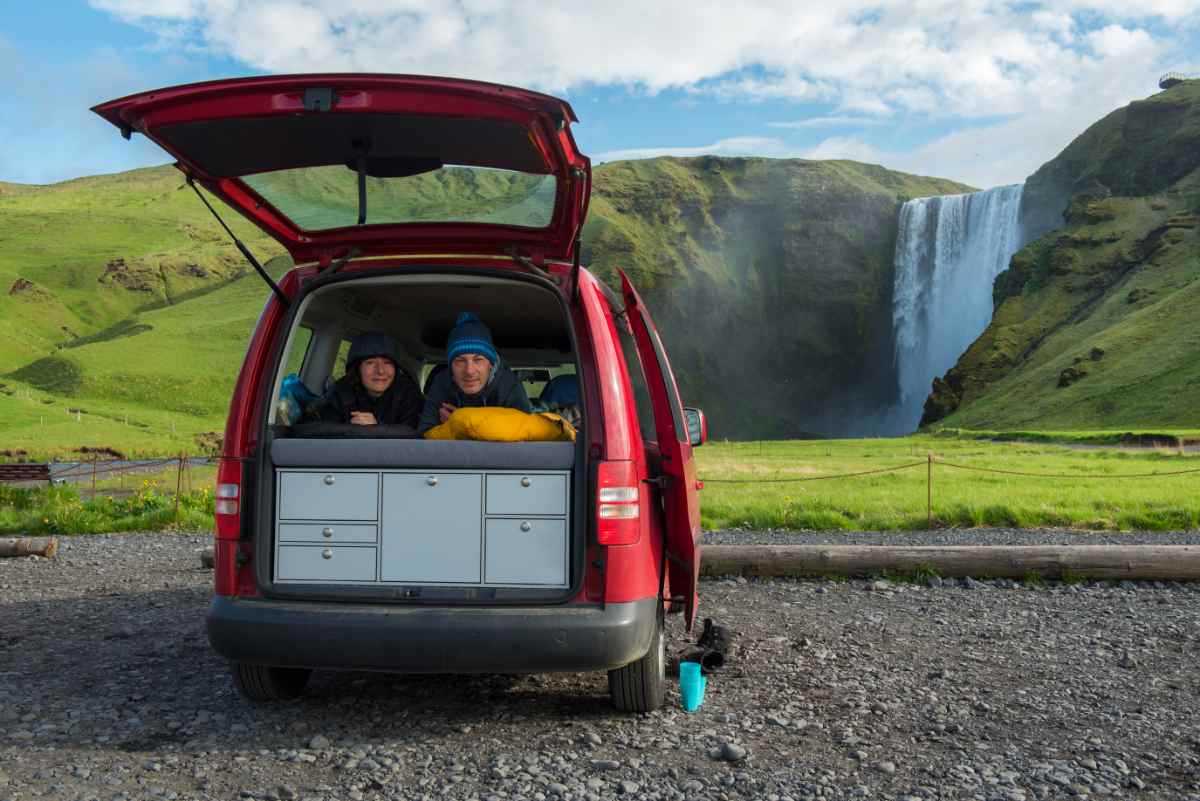
Exploring Iceland Your Way
Ultimately, deciding between an RV vs. a camper for your Iceland road trip comes down to what works best for you. Weigh all of the factors carefully before making your choice so that you can find the perfect vehicle to help make your dream Icelandic adventure come true! Contact us today to book your campervan rental in Iceland and make your Iceland dream a reality.



 By
By 






